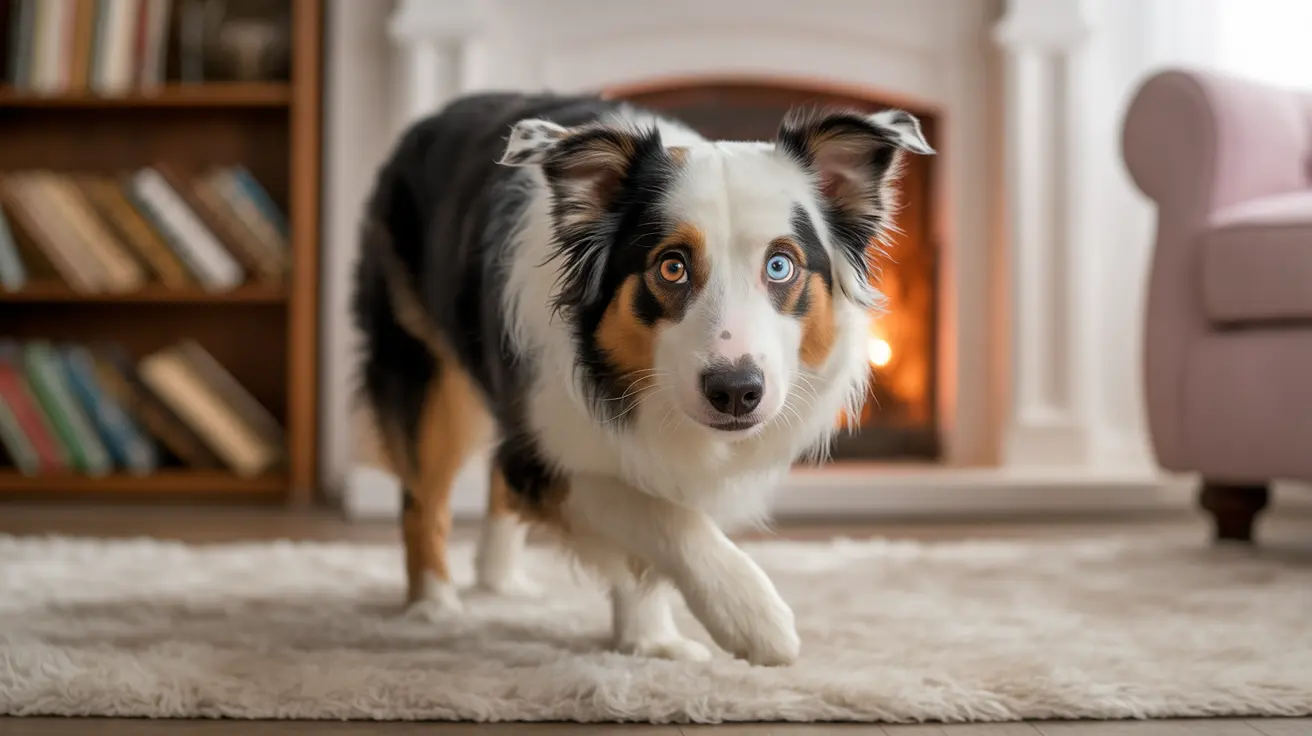What Defines a Neurotic Dog?
A neurotic dog typically exhibits maladaptive behaviors stemming from chronic stress or anxiety. These behaviors can range from mild to severe and often develop gradually over time. Unlike temporary reactions to specific triggers, neurotic behaviors persist and can affect multiple aspects of a dog's daily life.
Common Signs and Symptoms
Recognizing neurotic behavior in dogs requires careful observation. Here are key indicators to watch for:
Physical Symptoms
- Excessive panting or drooling
- Digestive issues
- Trembling or shaking
- Destructive chewing
- Self-harm behaviors like excessive licking
Behavioral Symptoms
- Constant pacing
- Excessive barking or whining
- Inability to settle
- Extreme clinginess
- Aggression or fearfulness
- Compulsive behaviors
Understanding the Root Causes
Neurotic behavior in dogs can stem from various sources:
Genetic Factors
- Breed predisposition
- Inherited anxiety traits
- Natural temperament variations
Environmental Triggers
- Past trauma
- Lack of socialization
- Unstable home environment
- Inconsistent training
- Separation anxiety
Treatment and Management Strategies
Addressing neurotic behavior requires a multi-faceted approach:
Professional Support
- Veterinary evaluation
- Behavioral specialist consultation
- Professional training programs
Home Management
- Establishing consistent routines
- Creating safe spaces
- Regular exercise and mental stimulation
- Positive reinforcement training
Prevention Tips for Dog Owners
While some dogs may be predisposed to neurotic behavior, there are steps owners can take to minimize risk:
- Early socialization
- Consistent training methods
- Regular exercise
- Proper nutrition
- Stress-free environment
- Positive relationships with family members
Frequently Asked Questions
What are the common signs that my dog might be neurotic or have anxiety disorders?
Common signs include excessive panting, pacing, destructive behavior, compulsive actions, extreme fearfulness, and inability to calm down in normal situations. Physical symptoms may include digestive issues and excessive drooling.
What causes neurotic behavior in dogs, and are certain breeds more prone to it?
Neurotic behavior can be caused by genetics, trauma, lack of socialization, or environmental stressors. Some breeds, particularly working and herding dogs, may be more predisposed to anxiety and neurotic behaviors due to their high-energy, sensitive nature.
How can I distinguish neurotic behaviors from other neurological disorders in my dog?
While neurotic behaviors are primarily psychological and behavioral, neurological disorders typically involve physical symptoms like seizures, loss of coordination, or paralysis. A veterinary evaluation is essential for proper diagnosis.
What are the most effective treatments and management strategies for a neurotic dog?
Effective treatments include behavior modification, environmental management, regular exercise, and sometimes medication. Working with professional trainers and veterinary behaviorists often provides the best results.
How can I prevent neurotic behaviors and anxiety from developing in my puppy?
Prevention focuses on early socialization, positive training methods, establishing routines, and providing adequate exercise and mental stimulation. Creating a stable, predictable environment helps build confidence and reduce anxiety risks.
Conclusion
While dealing with a neurotic dog can be challenging, understanding the condition and implementing appropriate management strategies can make a significant difference. With patience, consistency, and professional guidance when needed, many dogs can overcome or successfully manage their neurotic tendencies.
Remember that every dog is unique, and what works for one may not work for another. Stay committed to finding the right combination of treatments and management techniques that work best for your pet's specific needs.






